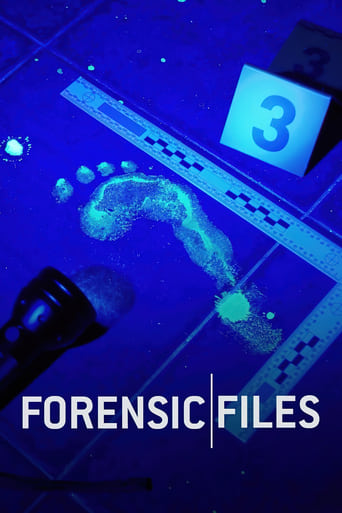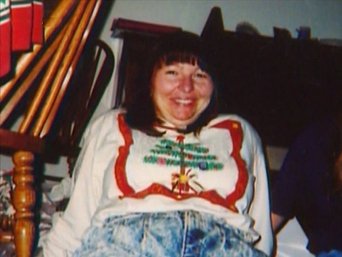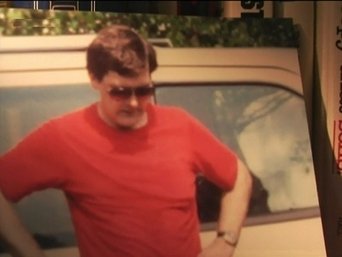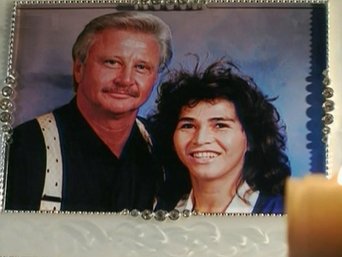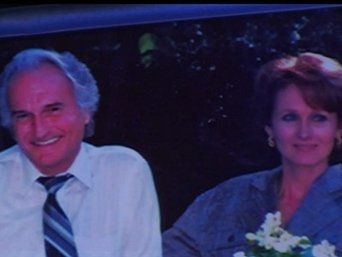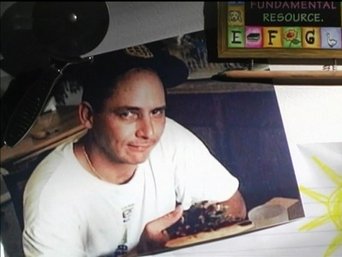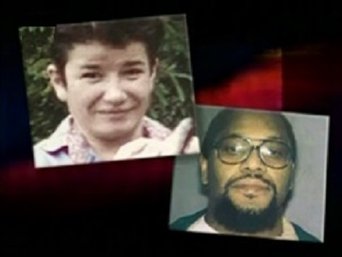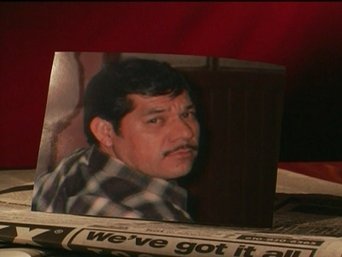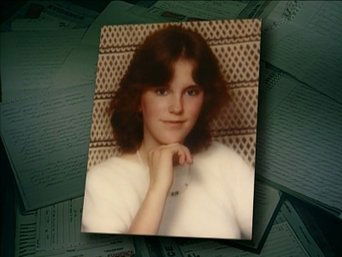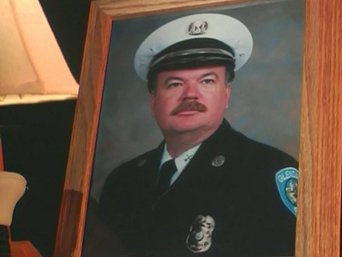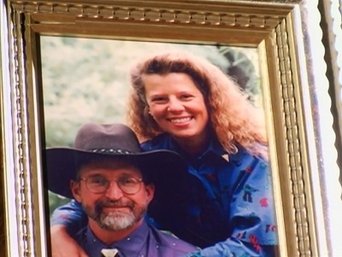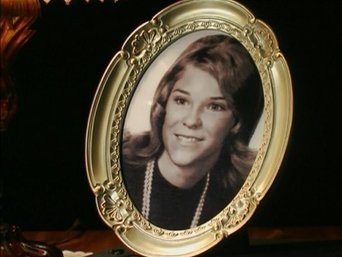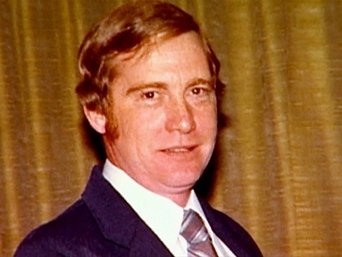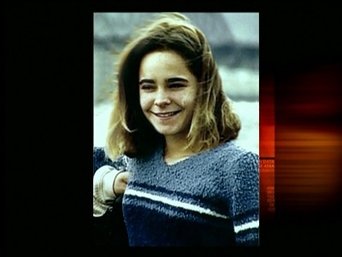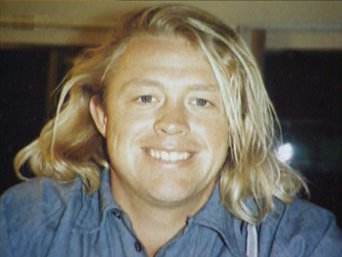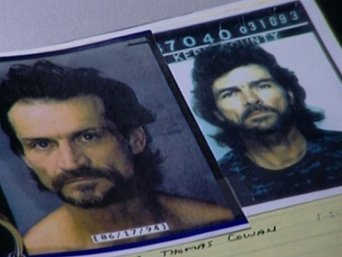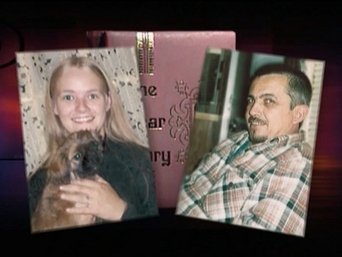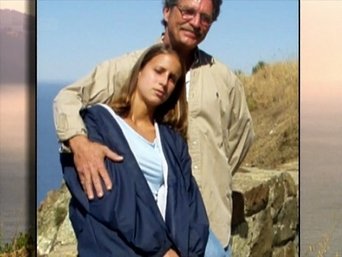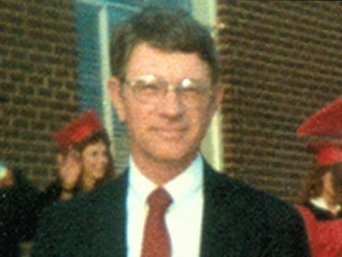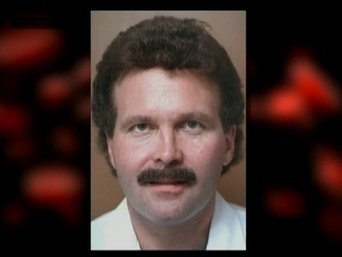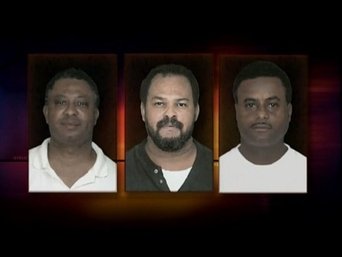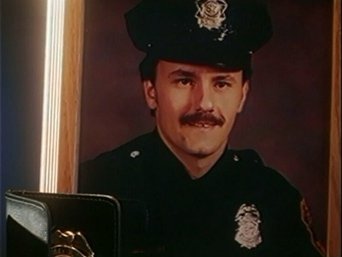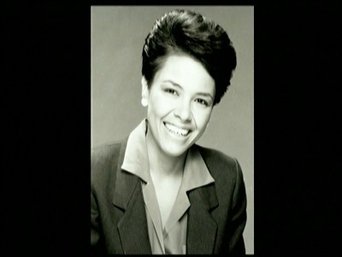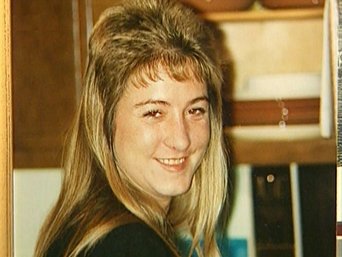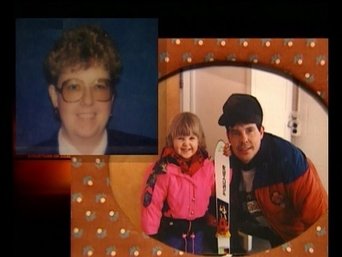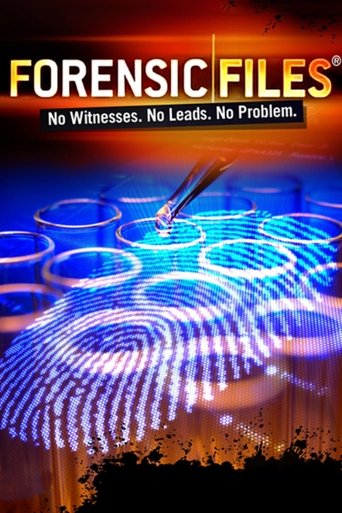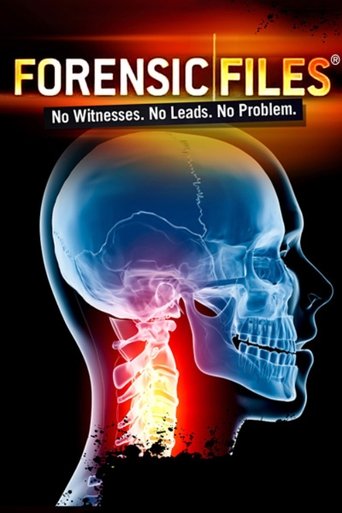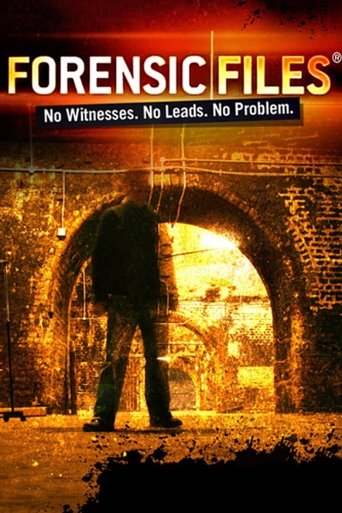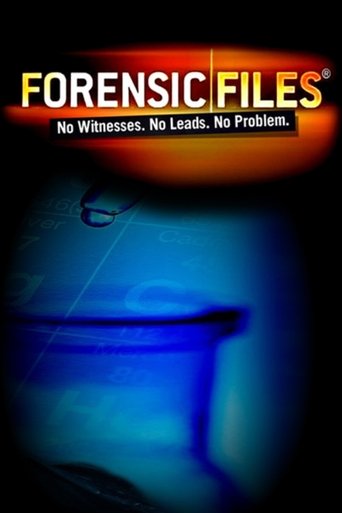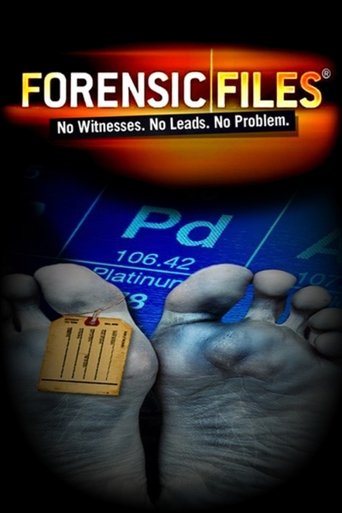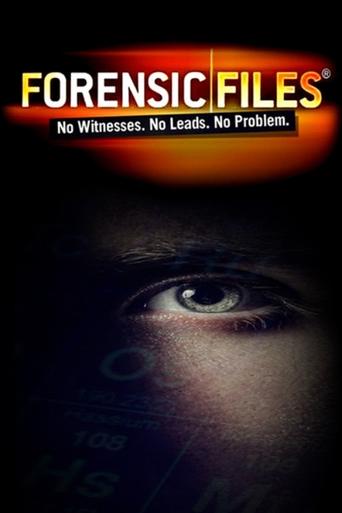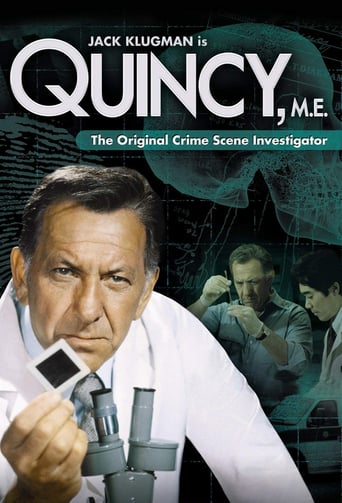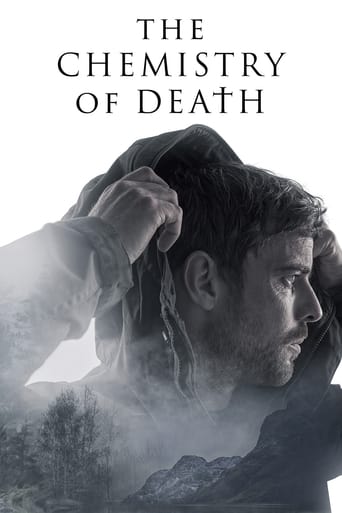Forensic Files Season 9
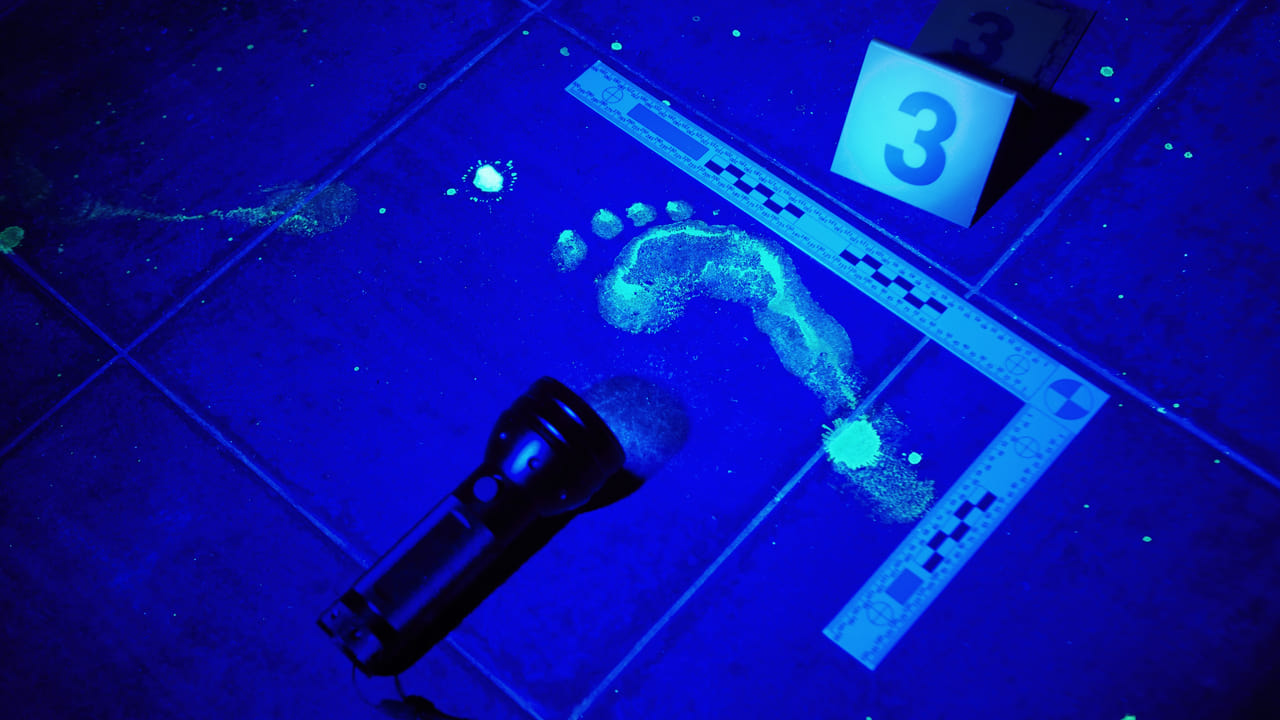
Real crimes, disease outbreaks and accidents around the world are solved by experts using scientific laboratory analysis which helps them find previously undetectable evidence. Brilliant scientific work helps convict the guilty and free the innocent.
Watch NowWith 30 Day Free Trial!
Forensic Files
1996 / TV-14



Real crimes, disease outbreaks and accidents around the world are solved by experts using scientific laboratory analysis which helps them find previously undetectable evidence. Brilliant scientific work helps convict the guilty and free the innocent.
Watch Trailer
With 30 Day Free Trial!
Forensic Files Season 9 Full Episode Guide
In the middle of the night, a neighbor watched in horror as a man stabbed his wife, pushed her into the swimming pool, and held her head under water. When questioned by the police, the husband not only had no explanation for his actions, he also had no recollection of the crime. A jury would have to decide between the evidence at the scene and the mysteries of the mind.
The investigation of the kidnapping of a prominent banker's wife led police on a wild goose chase, tracking down disgruntled bank customers and examining computer fonts. An unexpected discovery made by an entomologist resulted in a new suspect, and the realization that ordinary office equipment can leave behind extraordinary clues.
The cold-blooded murder of an American tourist in a Mexican resort focused law enforcement resources on both sides of the border. At first glance, the motive appeared to be robbery, but careful analysis of the forensic evidence pointed to something much more sinister.
When a wealthy real estate tycoon went missing, it appeared to be foul play. He had been aware that he was in danger. In his will, he left instructions regarding what was to happen if he died under violent circumstances – instructions which were carried out after a hiker came across a bullet-ridden skull.
A two-man shrimp boat sank when a fast-moving, violent storm struck the Louisiana coast. The captain drowned, and the deckhand was rescued fourteen hours later. He told the Coast Guard that the captain's foot had become entangled in the fishing nets; they tried frantically to free him, but they failed. The deckhand was considered a hero until the captain's body was found. Eventually, the public discovers that he was coerced into confessing to the captain's murder.
The news of a flight attendant's brutal murder prompted the son of a victim who had been killed five years earlier to contact police. The M.O. of both murders was remarkably similar, and analysis of the biological evidence from the crime scenes proved that these were serial killings.
Hikers near Anchorage, Alaska discovered a body wrapped in sheets edged in orange stitching. Authorities hydrated the fingers and obtained a fingerprint, enabling them to identify the victim. Clinging to the sheet, they also discovered a tuft of red carpet fibers – threads of evidence, which led them straight to the killer. [also marked as S9:E30]
When a woman disappeared without a trace, there were two possible explanations: kidnapping or murder. Concern was heightened when police learned that two other women had vanished under similar circumstances. Careful investigation, the talents of a forensic artist, and DNA profiling enabled police to link the crimes to a single suspect – an immigrant known to prey upon vulnerable women. [also marked as S9:E25]
In 2002, a small community in upstate New York was devastated when Patty Wlasiuk died when their truck went into a lake, from which her husband Peter stated he narrowly escaped. Investigators initially thought alcohol was to blame, but blood tests proved the victim was not intoxicated. Burdock seed pods found in her hair and on her clothes would indicate that this was no acciden - it was cold-blooded murder.
In 1984, California firefighters had battled ten arson fires in three weeks. When cigarettes and a scrap of paper connected the southern California fires to several fires further north, the hunt was on for a dangerous pyromaniac. Investigators finally found a fingerprint, and it pointed to a most unlikely suspect.
A Colorado hunter who'd been shot three times and killed was the victim of a well planned crime, not an accidental shooting. Investigators found a .243 calibre bullet in his lung and a .308 calibre shell casing near his body, and suspected they were looking for two murder weapons, and two killers. But analysis of the forensic evidence pointed them in a different direction one much closer to home.
A go-go dancer told her family she needed to get away for a while, and then she simply disappeared. Investigators were suspicious, because she took neither her car nor her clothes. The next twenty years passed slowly, and the family began to think they might never know what happened until they received a phone call which changed everything.
The body of a young California co-ed was found under an isolated ramp of the Interstate, and San Diego police had no idea who would want this girl dead. But their questions would be answered when they discovered a tiny, unique fiber on the victim's clothing, which led them straight to the most unlikely of killers.
A man disappears one year to the day after beginning an affair with his friend's wife. 15 years later, with the help of a metal detector, police found evidence which would prove what had happened, and who was responsible.
A 19-year-old woman was found dead in her car; the scene had been staged to appear to be suicide. During their investigation, police discovered the victim was involved in a love quadrangle, giving several people motive to kill. The killer's identity would be revealed by a piece of evidence found in a suspect's trash. [also marked as S9:E18]
After a street fight took the life of a national wrestling champion, police had to determine if he was killed in cold blood, or in self-defense. A jury decided it was murder, and sentenced the accused to a minimum of twenty years in prison. Six years later, he was granted another trial; a forensic animator, who testified on his behalf, offered a different explanation for the most damning piece of evidence. [also marked as S9:E17]
California police had several suspects in the robbery and brutal murder of an elderly couple. Unfortunately, the forensic evidence was inconclusive, and the crime went unsolved. Ten years later, a determined forensic scientist used material from a dentist's office to uncover ballistic evidence which had been overlooked. He not only solved the crime, he also made scientific history.
Haunted by the disappearance of her mother some twenty years earlier, a young woman undertook an investigation of her own. Her mother's diary was in the now cold case file; there, in her mother's own handwriting, she discovered a dark family secret, which might have been the reason her mother vanished.
A vibrant young woman falls to her death from a cliff overlooking the Pacific Ocean In what appears to be a tragic accident; a forensic examination of photographs taken at the scene tell a different story. [also marked as S9:E14]
The body of 16-year-old Leanne Tiernan is discovered nine months after she disappeared. Forensic scientists find clues that paint a virtual portrait of her killer. [also marked as S9:E13]
A young couple decided to celebrate their first wedding anniversary with a camping trip to Mount Hood. During the trip, the husband was shot and killed, and his wife told two different versions of the events which led to his death. Forensic psychiatry finally enabled her to distinguish fact from fiction, and the evidence from ballistics tests allowed investigators to determine what really happened.
Residents of Noel, Missouri were stunned to learn that their bank had been robbed and the bank president was missing. His body was later found floating in a lake, securely bound to a chair with duct tape. When the tape was carefully reassembled using a technique known as end match analysis, investigators discovered one piece was missing. It would be that piece, and tips from concerned citizens, which would solve the crime.
A young woman suddenly becomes critically ill; her symptoms worsen over time, eventually leaving her unable to walk. Then a bone marrow test reveals arsenic poisoning. Investigators had to determine if it is due to groundwater contamination or something much more sinister.
For seven years, a trio of men robbed one bank after another leaving no evidence behind. But forensic scientists help catch them by looking at the criminals' posture and clothing. [also marked as S9:E9]
Investigators sifted through the ashes of a fire, which had killed a 40-year-old woman, the estranged wife of a police officer. At first glance, the fire appeared to have been started by an unattended cigarette, but when forensic scientists looked closely, they discovered the cause was far more complicated. [also marked as S9:E12]
A talented television news anchor was shot to death outside her home; it appeared to be a crime of passion, perpetrated by an obsessed fan. A police dog tracked the scent of the killer through the adjacent woods and back to the crime scene. Could the murderer be one of the onlookers, watching the police conduct their investigation?
A woman disappears without a trace; even though foul play is suspected, the leads don't pan out and the trail turns cold. Twenty years would pass before police are able to link a clump of hair discovered in an isolated area with the missing woman. Members of "NecroSearch," a group of volunteer forensic scientists, searched a remote area of Colorado a meter at a time, found the victim's body, and gave authorities the evidence they needed to bring the killer to justice. [also marked as S9:E5]
An Alaskan police officer found a woman's body while on routine patrol of a public park. The victim had been stabbed to death and, during the autopsy, the medical examiner preserved the portion of her rib cage which sustained the fatal wound. A knife thought to be the murder weapon turned up days later, two thousand miles away. Forensic scientists now had an opportunity, which seldom occurs, to compare the microscopic marks on the presumed murder weapon with the marks on the victim's bone.
On the last day of deer hunting season, a woman is killed while walking her dogs in the woods. The victim has no enemies and her husband has an alibi, so police assume it was a hunting accident... until a strange letter turns up, allegedly written by the woman before her death. Police begin to wonder if the woman may have been the target all along, and a forensic document examiner, a slingshot, and an unusual physics experiment answer their question.
The investigation of a discarded sleeping bag, containing bloody sneakers and a purse, leads police to the body of a young woman, Carrie Love. Evidence from the autopsy and the crime scene was carefully collected and analyzed, but it would be a mark found on the victim's body, which would enable police to track the killer.
Free Trial Channels
Seasons


